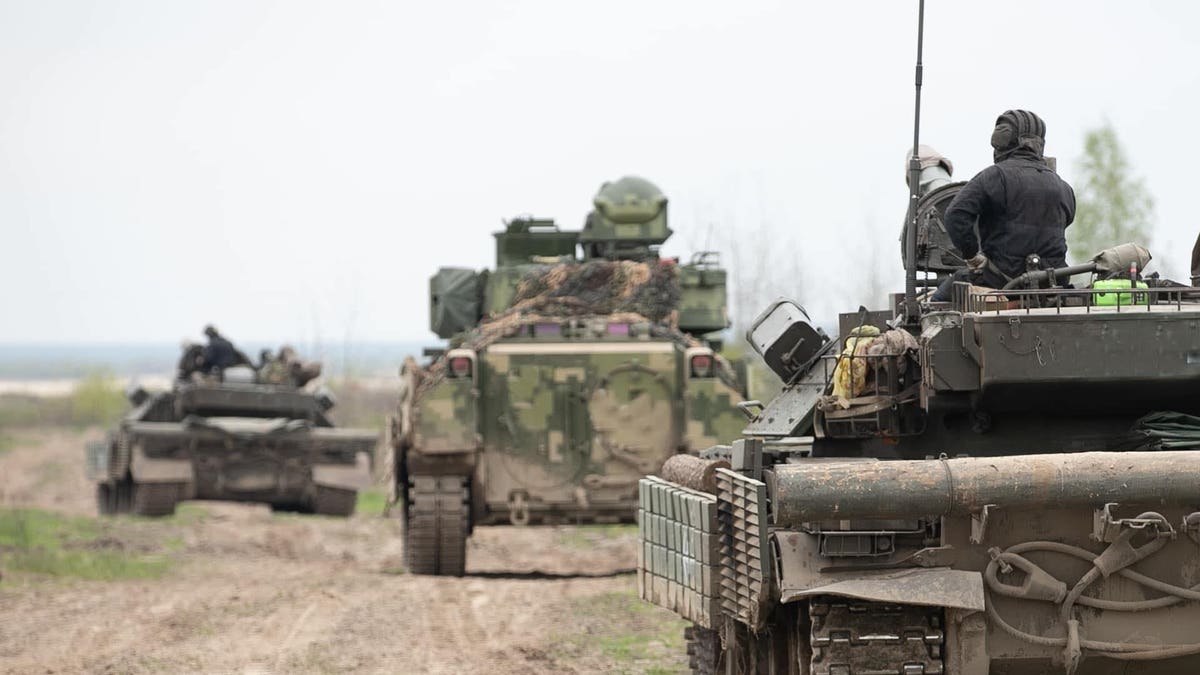The Ukrainian army and air-assault force have liberated Robotyne.
Eleven weeks after Ukrainian brigades launched attacks along several major axes in southern and eastern Ukraine—including an axis threading through Robotyne to Russian-occupied Melitopol—troopers from the Ukrainian army’s 47th Brigade hoisted a flag atop a building in Robotyne’s town center.
It’s another 50 miles to Melitopol along the T0408 road, but the Ukrainians have momentum. The next major strongpoint after Robotyne is Tokmak; after that, it’s a straight shot to Melitopol and the Black Sea coast.
If Ukrainian troops are going to reach the coast and sever the overland supply lines into Russian-occupied Crimea, they might do so here, along the fields and narrow treelines on the road to Melitopol.
Two brigades are leading the way: the 47th and 82nd.
The army’s 47th Brigade initiated the assault toward Robotyne back in early June. The 47th and its partner 33rd Brigade suffered heavy casualties in the first few days. A disastrous attempt to breach a minefield north of Robotyne on June 8 cost the brigades two dozen of their best Leopard 2A6 tanks, M-2 infantry fighting vehicles and Leopard 2R mineclearers.
The 47th recovered from the minefield debacle and kept fighting. The brigade took advantage of the excellent night optics on its Leopard 2s and M-2s and attacked at night. When the assaulting battalions ran up against Russian trenches, the M-2s laid down suppressive fire with their 25-millimeter autocannons while the infantry raced forward, hurling grenades.
The air-assault force’s powerful 82nd Brigade—riding in Challenger 2 tanks and Marder and Stryker IFVs—joined the fight only last week. It added massive firepower to the Melitipol offensive, preserving the Ukrainians’ momentum at a time when the 47th’s heavy losses—including dozens of M-2s—threatened to slow the attack.
While the army and air-assault force’s deliberate attacks toward Melitopol aren’t as flashy as are the marine corps’ tank-and-truck thunder runs along the Mokri Yaly River Valley, 60 miles to the east of Robotyne, they’re no less effective.
It’s popular among certain American pundits to describe the Ukrainian counteroffensive as “failed,” “stalled” or “misallocated.” But the liberation of Robotyne underscores the truth: the Ukrainian armed forces slowly and steady are pushing the Russian armed forces out of Ukraine. A Russian countercounteroffensive along a single axis west of Kreminna, in northeastern Ukraine, so far hasn’t spoiled the Ukrainian advance.
How much of their country the Ukrainians can liberate before the counteroffensive culminates, and Russia’s 19-month wider war on Ukraine enters a new phase, might depend on the quality of Ukraine’s reserves. The fresh 82nd Brigade was available to bolster the wearier 47th Brigade in week 10 of the counteroffensive. But what brigades will bolster the 82nd in week 20?
There are uncommitted brigades in the Ukrainian order of battle, including the army’s 61st along with several territorial and national guard brigades. And Kyiv’s foreign allies are organizing large consignments of additional weaponry, including scores of replacement Strykers and M-2s plus M-1 and Leopard 1 tanks and F-16 fighters.
Perhaps more importantly, Ukrainian artillery batteries—reequipped with NATO-style cannons and rocket-launchers and supplied with shells from American and European factories—have maintained a steady barrage along the 600-mile front line, directly supporting the attacking brigades while also targeting Russia’s own artillery.
Ukrainian gunners have knocked out more than three Russian artillery pieces for every one Ukrainian artillery piece Russian gunners have knocked out. Deliberately hunting down the most dangerous weapons, the Ukrainians have destroyed a third of Russia’s pre-war force of 2S4 siege mortars.
The degradation of Russian artillery could weaken Russia’s defense—and bolster the Ukrainian offense. “The Ukrainian advance in the Robotyne area brings Ukrainian forces closer to launching operations against second lines of defense that may be relatively weaker than the first Russian defensive line in the area,” the Institute for the Study of War in Washington, D.C. noted.
Read the full article here





